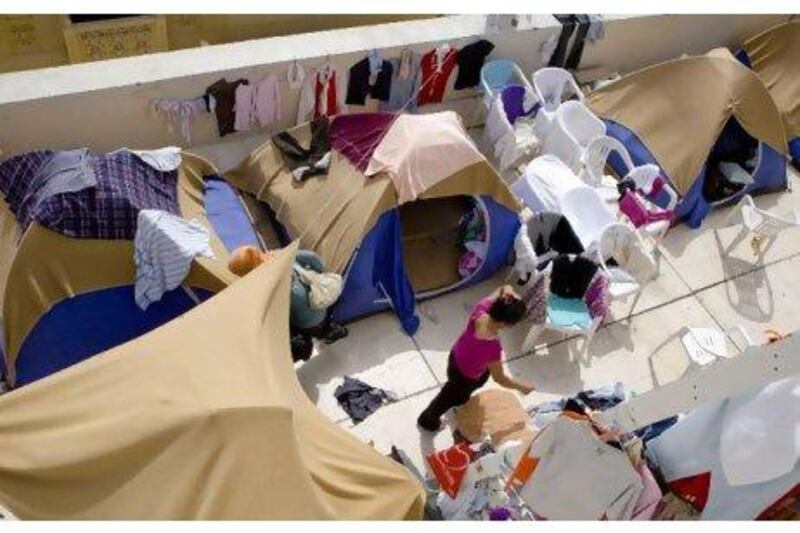ABU DHABI // The Indonesian and Philippine embassies have started sending reported runaway maids in their shelters to a deportation centre.
Under new immigration procedures, which took effect on December 10, all housemaids whose employers have reported them to police as runaways are being taken to the deportation centre at Al Wathba Central Prison, even if they already have passports and air tickets.
Housemaids in the shelters whose employers have not reported them as runaways can stay until they get their affairs in order, under the new procedures.
Previously, the runaway housemaids were not required to go to the deportation centre, and could stay in a shelter until they were either able to legally find another employer or were ready to fly home.
Hannan Hadi, the head of the consular section at the Indonesian embassy, said UAE immigration officials had told him the new policy was aimed at clearing the country of illegal and absconding workers.
"The Government wants to ensure that workers with cancelled visas actually leave the UAE instead of staying and working here illegally," Mr Hadi said.
There are 70 maids at the Indonesian embassy's shelter. The labour office shelter at the Philippine embassy is overwhelmed with 124 Filipinas.
The women fled their employers' homes after complaining of unpaid salaries, overwork, lack of food and various other forms of mistreatment.
Immigration officials coordinate with the runaway maids' former sponsors, and arrange for their deportation flights home, according to Nasser Munder, the labour attache at the Philippine embassy.
Maids whose employers have not reported them as runaways remain at the embassy shelters until issues with their former sponsors and recruitment agencies are resolved, enabling them to legally leave the country, or transfer to a new sponsor.
Mr Munder said UAE authorities also would like to ease overcrowding in the embassy shelters by expediting repatriation. The Indonesian Embassy took nine maids with runaway cases to Al Wathba on December 20, Mr Hadi said.
The Philippine Embassy has also complied with the new procedures by sending nine maids on December 29, and 16 yesterday.
"We're trying to send them in several batches to prevent overcrowding at the centre," Mr Munder said.
There are no judicial proceedings; clearance from immigration is required for the women to return home. The entire process takes one to two weeks.
"Previously, we would take the absconding maid to immigration for visa cancellation, an eye scan and an exit pass, which costs Dh170," Mr Munder said, adding that previously, the absconding maid would be sent back to the shelter until she was scheduled to fly home.
A 35-year-old Filipina, who requested that her name be changed to "Sarah" for this article, was among those sent to Al Wathba yesterday because her former employer reported her as a runaway in 2009.
"I cried last night," she said on Tuesday. "I don't know what will happen to me at the deportation centre, since I've been working illegally for a year."
She said she had fled her Emirati employer on October 29, 2009 after the couple, who had 10 children, constantly yelled at her. She said the wife also slapped her and threw a stew pot at her.
Before arriving at the women's shelter at the Philippine Embassy in October 2010, Sarah worked part-time for one year for Egyptian, Jordanian and British families in Abu Dhabi.
Sarah, who is from Malolos, Bulacan, about 32km north of Manila, bought an airline ticket to Manila and was hoping to fly this week.
"My three-year-old son is waiting for me," she said. "I can't wait to go home."
Mr Munder assured the housemaids that they were not being sent to prison, and that the move was only part of repatriation procedures.
"We got some good feedback from a maid who had stayed at the deportation centre," he said.
"They have their own beds, were served catered food, and the police helped them recover their belongings from their former sponsors."
Mr Hadi at the Indonesian Embassy said: "We fully support the new procedures and we hope that the immigration authorities will continue implementing them."
The only drawback, he said, was that embassy officials now have to travel to the deportation centre to find out when housemaids have left the country. That information, he said, is not automatically sent to the embassy.
"We need to inform Jakarta about the flight and arrival details of the maids," Mr Hadi said.






